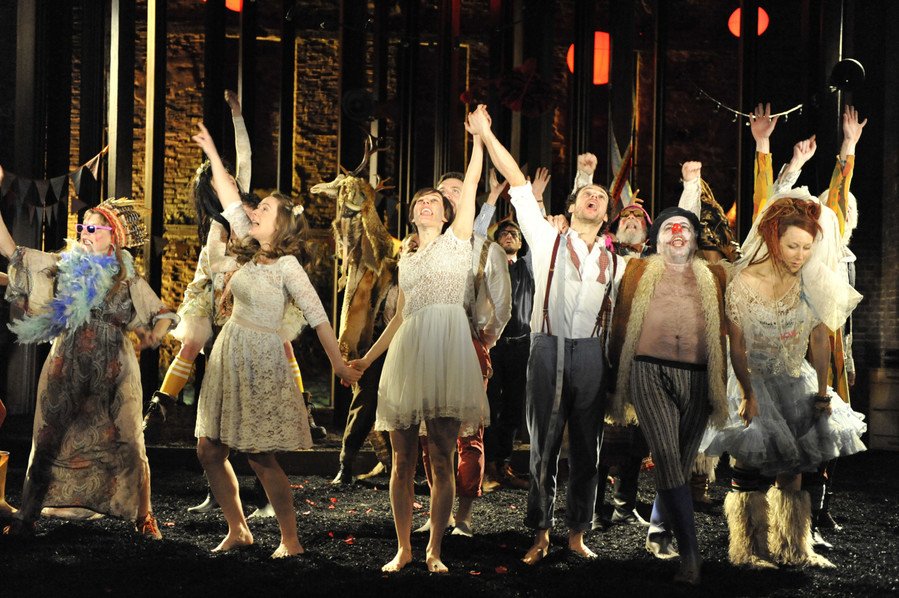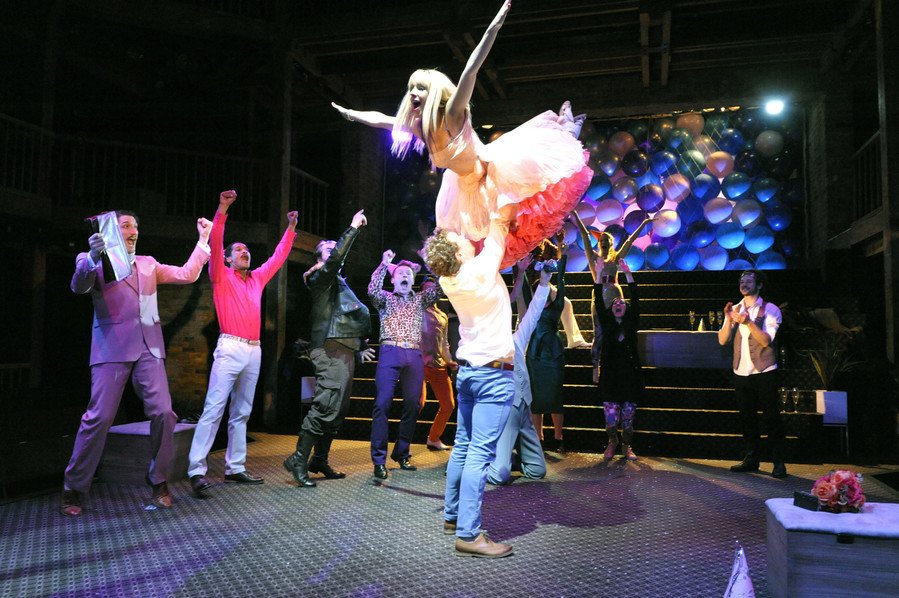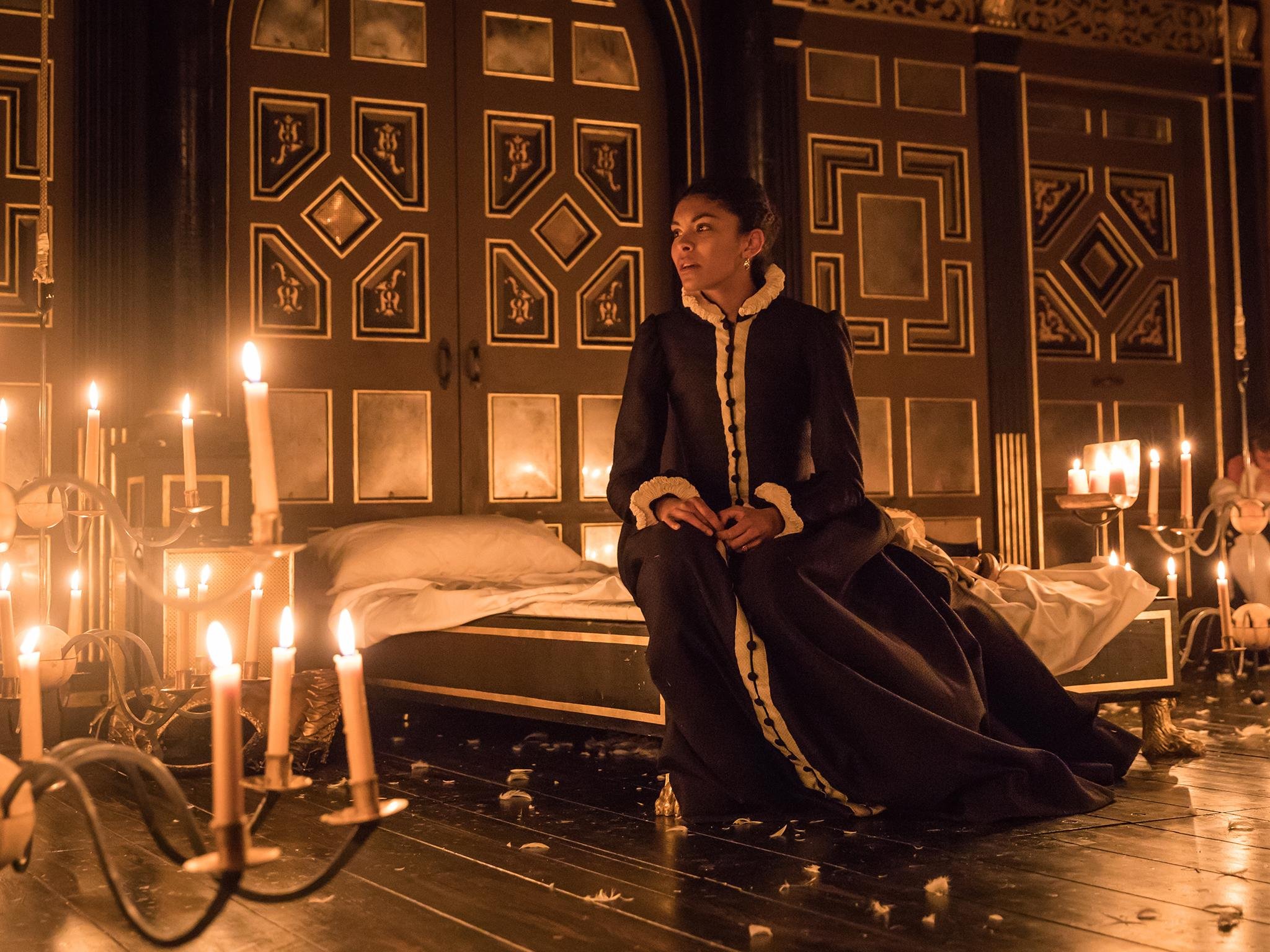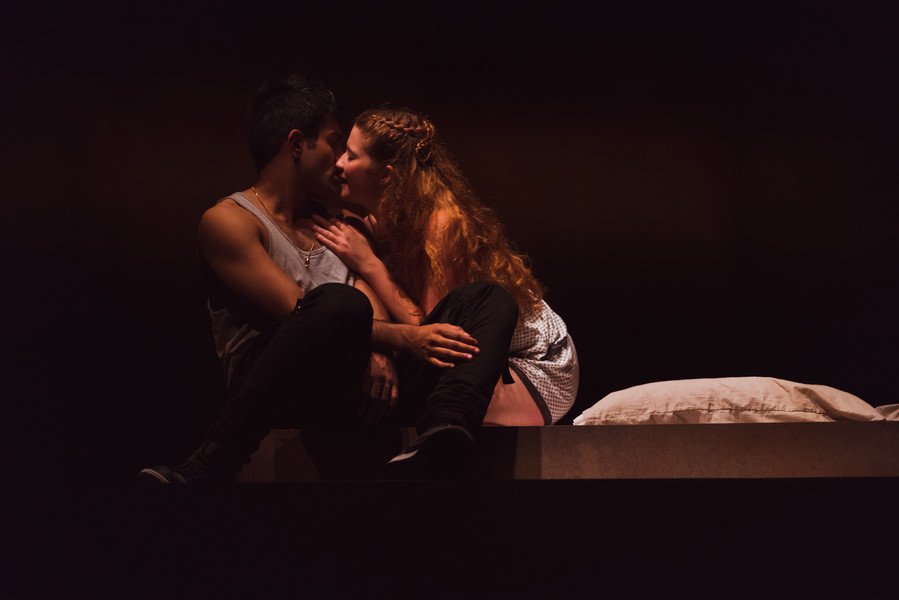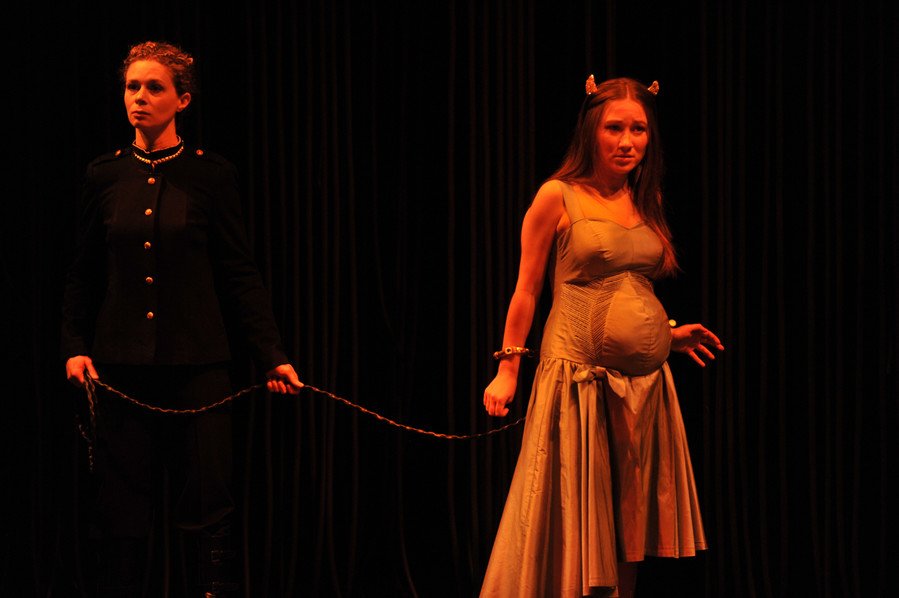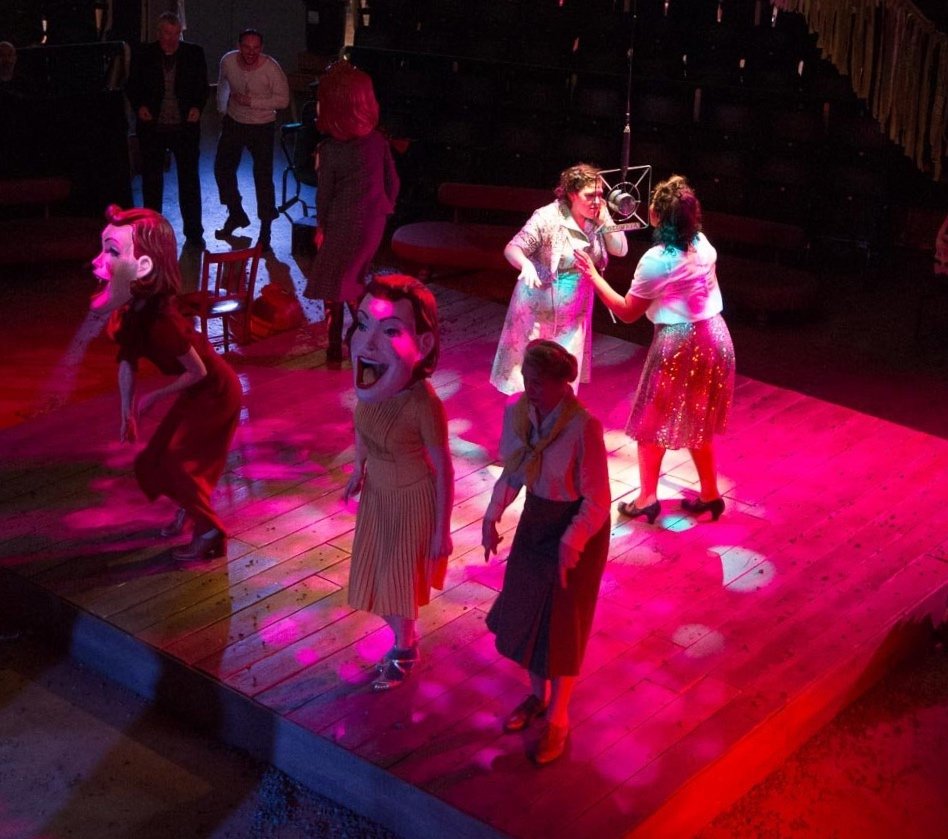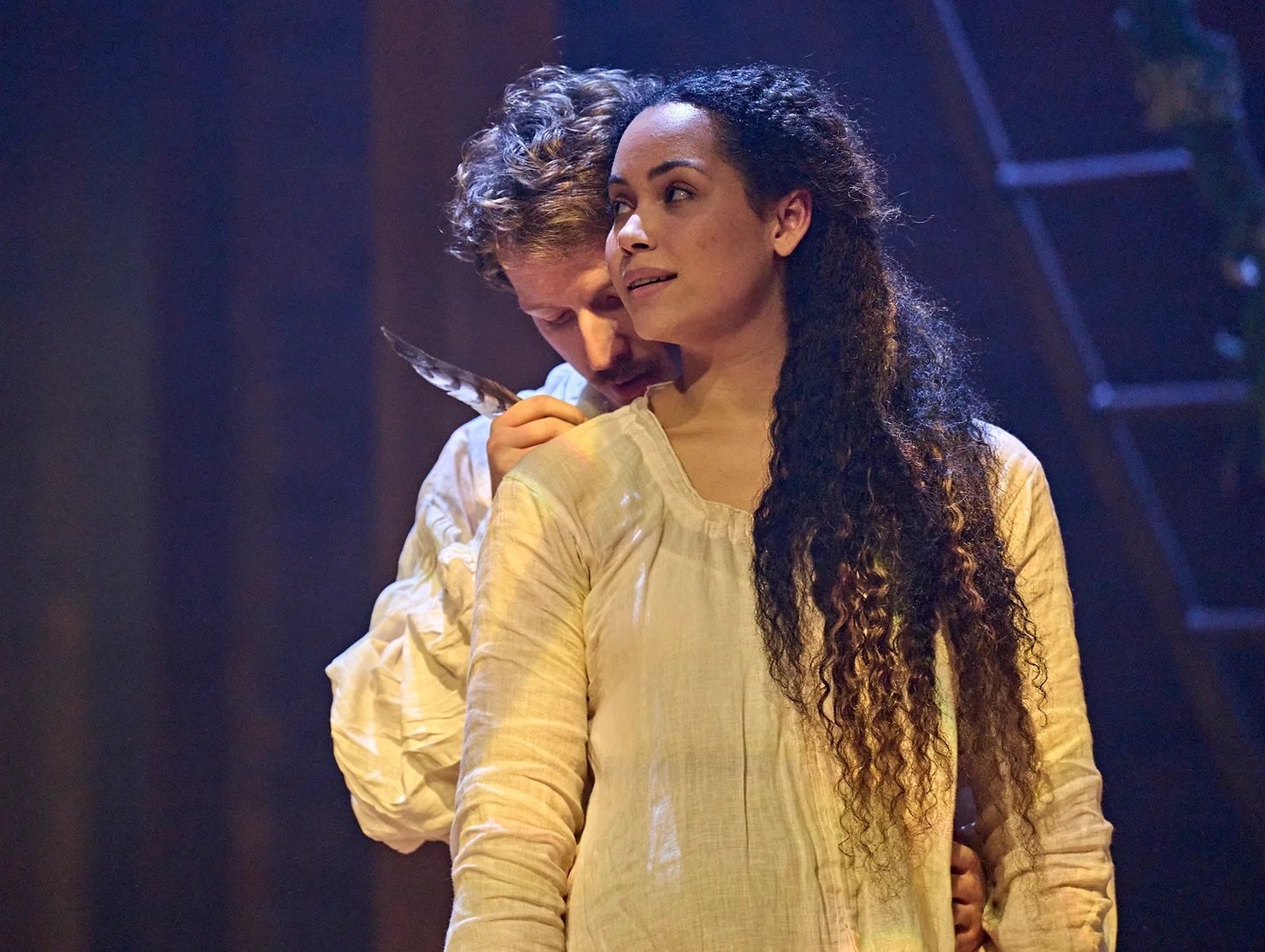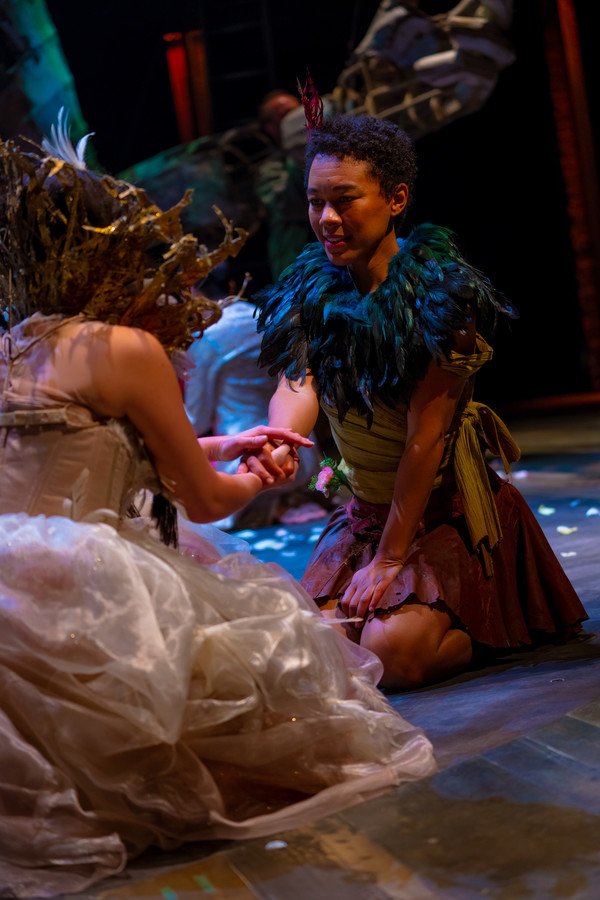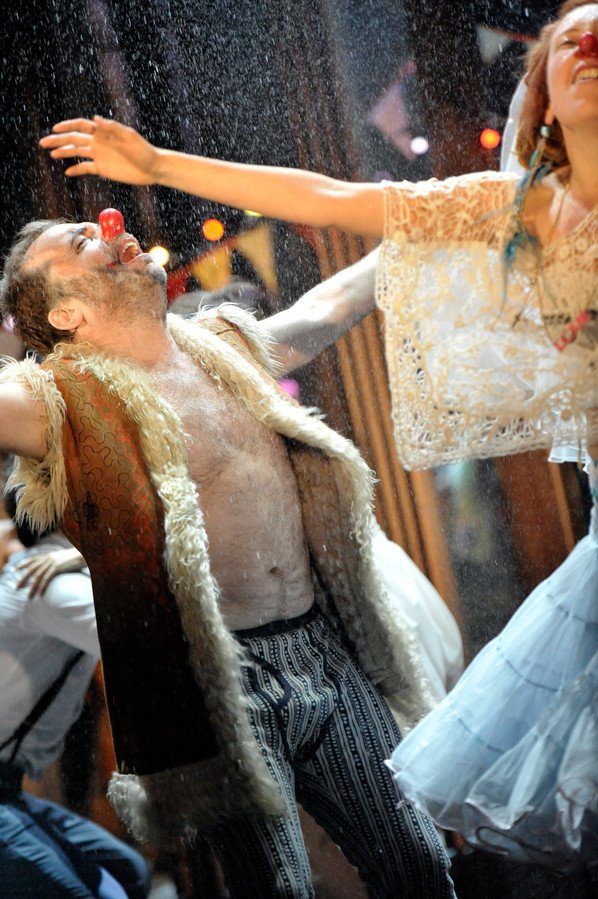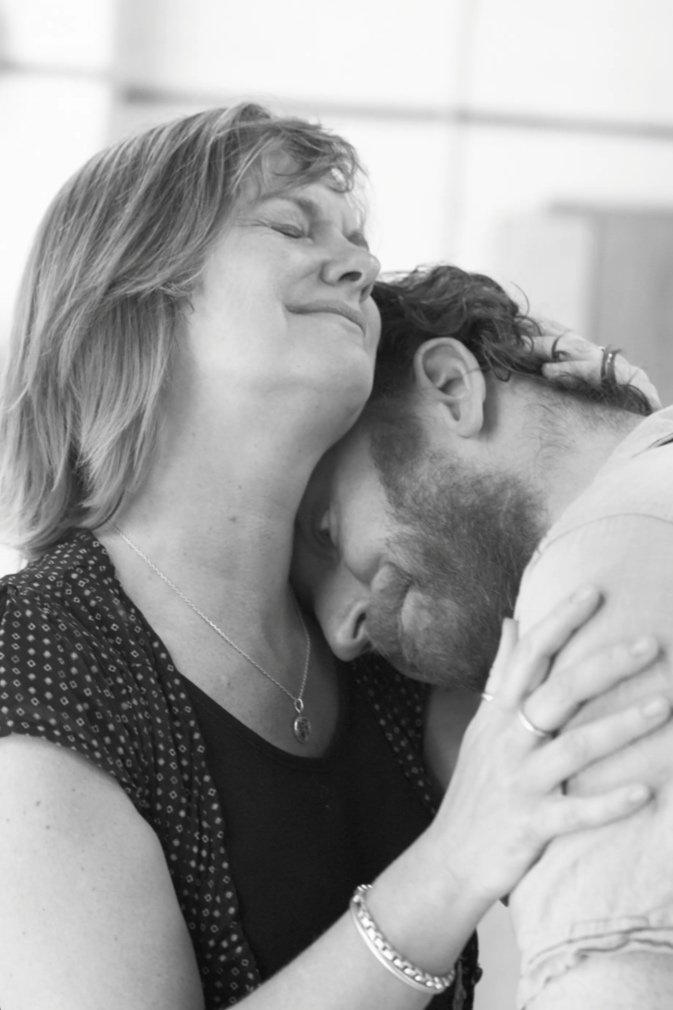I walked through a town celebrating Shakespeare’s birthday last week. Everywhere young people, young men, children holding fresh spring flowers… I was stopped in my tracks at this sight. It was so unexpected, festive and pagan - two essentials for community rituals. I have been movement directing an intimate portrayal, an imagining of the family life of the Shakespeares. My movement life on this project has been full of births, love, illness, dying, domestic tasks, caring, tending, nursing, delivering babies, living as a twin, dancing, undressing, dressing, flying, falconry, bee keeping, being a Londoner, dying. This family’s physical lives have become very vivid and very real. It’s like their movement moves through you - it moves through me. Words like visceral and sensual will be used about this production by those who see it. And it has been both of those as a movement director - it has also been a labour, a joyful celebration of graft…which sounds a lot like ‘craft’.
It gave me a moment to reflect on the way that each of the plays (ten) that I have movement directed by Shakespeare has offered a unique set of creative challenges; and also a wondrous deep plunge into a playwright whose words are flow, metaphor, poetry, experience. A type of music of lived experience. There is a lot of noise around this writer and the first step is to still those voices so your/my body can listen and feel the proposition. His language expresses the body unlike any other playwright I know. Beyond the words are the actions suggested; these wide open terrains of dancing, rituals, battles, storms, magic, vanishings, substitutions, incantations, deaths, masques - an invite for the potential of theatre and potential of bodies in movement to lead us into events where bodies speak to bodies. Spoken language fails to wholly capture lived experience. As a movement director my attention of course goes to the written language, but equally to these other potent spaces - I always do a humoral reading to get me there.
And I also dwell, like a movement anthropologist or a collector of movement memories/images - on a 21st Century snapshot of full adolescent physical awkwardness and lovingly gathered spring flowers - standing in line to honour Will. Body, community and ritual at the heart of it.
Photo above: Hamnet 2023 with Madeleine Mantock and Tom Varey Photo by Manuel Harlan @RSC
King John (2012), Romeo and Juliet (2018), Merry Wives of Windsor (2012), Othello (2017), As You Like It (2013), Richard III (2012), As You Like It (2019), Much Ado About Nothing (2014), Measure for Measure (2011), Macbeth (2007).
Please see each production page for full production and photo credits
